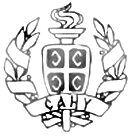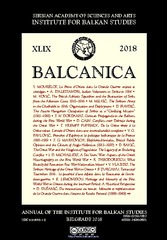Приказ основних података о документу
German Propaganda in the Balkans during the First World War
| dc.creator | Dordanas, Stratos N. | |
| dc.date.accessioned | 2019-06-21T10:56:52Z | |
| dc.date.available | 2019-06-21T10:56:52Z | |
| dc.date.issued | 2018 | |
| dc.identifier.issn | 0350-7653 | |
| dc.identifier.issn | 2406-0801 | |
| dc.identifier.uri | https://www.ceeol.com/search/article-detail?id=751347 | |
| dc.identifier.uri | https://dais.sanu.ac.rs/123456789/6254 | |
| dc.description.abstract | Immediately after the outbreak of the First World War Germany mobilized human resources from all fields and put up all the necessary funds to counter British and French propaganda. In a very short period of time, it was in a position to organize its own propaganda networks abroad, to a large extent, by using the respective commercial networks and the pre-war enterprises operating in various countries. It was the neutral countries around the world that were among the primary targets of German propaganda. In the Balkans particular effort was made to create a favourable climate for the Central Powers and prevail over the adverse British and French influence. With the assistance of commercial circles and the appropriation of large sums of money, newspapers, journalists and publishing groups were bought off, information offices set up, agents recruited, political parties and politicians bribed, and pro-German parties founded. The aim was to influence public opinion, promote the German version of war developments, and manipulate political leaders to give up their stance of neutrality and make the decision for their country to take part in the war on the side of Germany. However, even though Berlin focused its attention on the Balkans where the major propaganda networks were organized, the propaganda campaigns proved to be essentially ineffective. Following Bulgaria’s entry into the war on the side of the Central Powers and the destruction of Serbia, first Romania and then Greece joined the Entente, finding themselves on the winning side at the war’s end. | en |
| dc.language.iso | en | |
| dc.publisher | Belgrade : Institute for Balkan Studies, Serbian Academy of Sciences and Arts | |
| dc.rights | openAccess | |
| dc.rights.uri | https://creativecommons.org/licenses/by-nc-nd/4.0/ | |
| dc.source | Balcanica | |
| dc.subject | German propaganda | |
| dc.subject | German Foreign Ministry | |
| dc.subject | neutrality | |
| dc.subject | Greece | |
| dc.subject | Romania | |
| dc.subject | Bulgaria | |
| dc.subject | newspapers | |
| dc.subject | Freiherrn Garl Schenck von Schweinsberg | |
| dc.subject | Ludwig Roselius | |
| dc.subject | Agentia Romana-Germana de Informatii | |
| dc.subject | public opinion | |
| dc.title | German Propaganda in the Balkans during the First World War | en |
| dc.type | article | |
| dc.rights.license | BY-NC-ND | |
| dcterms.abstract | Дорданас, Стратос Н.; | |
| dc.citation.spage | 69 | |
| dc.citation.epage | 78 | |
| dc.citation.volume | XLIX | |
| dc.identifier.wos | 000462505500006 | |
| dc.identifier.doi | 10.2298/BALC1849069D | |
| dc.type.version | publishedVersion | |
| dc.identifier.fulltext | https://dais.sanu.ac.rs/bitstream/id/19613/bitstream_19613.pdf | |
| dc.identifier.rcub | https://hdl.handle.net/21.15107/rcub_dais_6254 |

